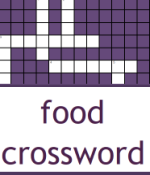1. Prioritize: You don’t need to memorize each and every new word, every time
Beginners: First, you need to learn a set of ‘operational’ words, like pronouns, auxiliaries, standard connectors etc, to help you make sense of the language. Then, you can deal with any other vocabulary set, starting form your immediate environment (house, workplace).
False beginners and up: Are you likely to use the word ‘multivoltine’ to describe a butterfly? I think not, unless it is part of your professional slang. So, it should go near the bottom of your vocabulary checklists to make space for words you are more likely to need.
2. Use it: Incorporate the new words in your everyday communication and habits
Okay, maybe not in that professional email you need to send by tomorrow. You should, however, try to use the new words in informal situations where mistakes won’t embarass you: informal communication with colleagues, small-talk with the neighbours, grocery lists, gym, pottery class, careless drivers…
Word puzzles are a fun and seamless way to vocabulary building and can be adapted for all age groups:
– How many words starting with “d” can you find in 90”?
– Who is going to win all rounds of a “name, place, animal, thing” competition game?
– Who can find a word from the last letter of my word?
3. Put it in context: “words in lists” or “words in example sentences”?
What does “non-waivable” mean? What does “An employee’s non-waivable right to a workplace free of preventable hazards” mean? Easier to remember, right?
What about “window ledge” versus “I took a picture of a cat and a flowerpot on a window ledge”? Decidedly easier.

